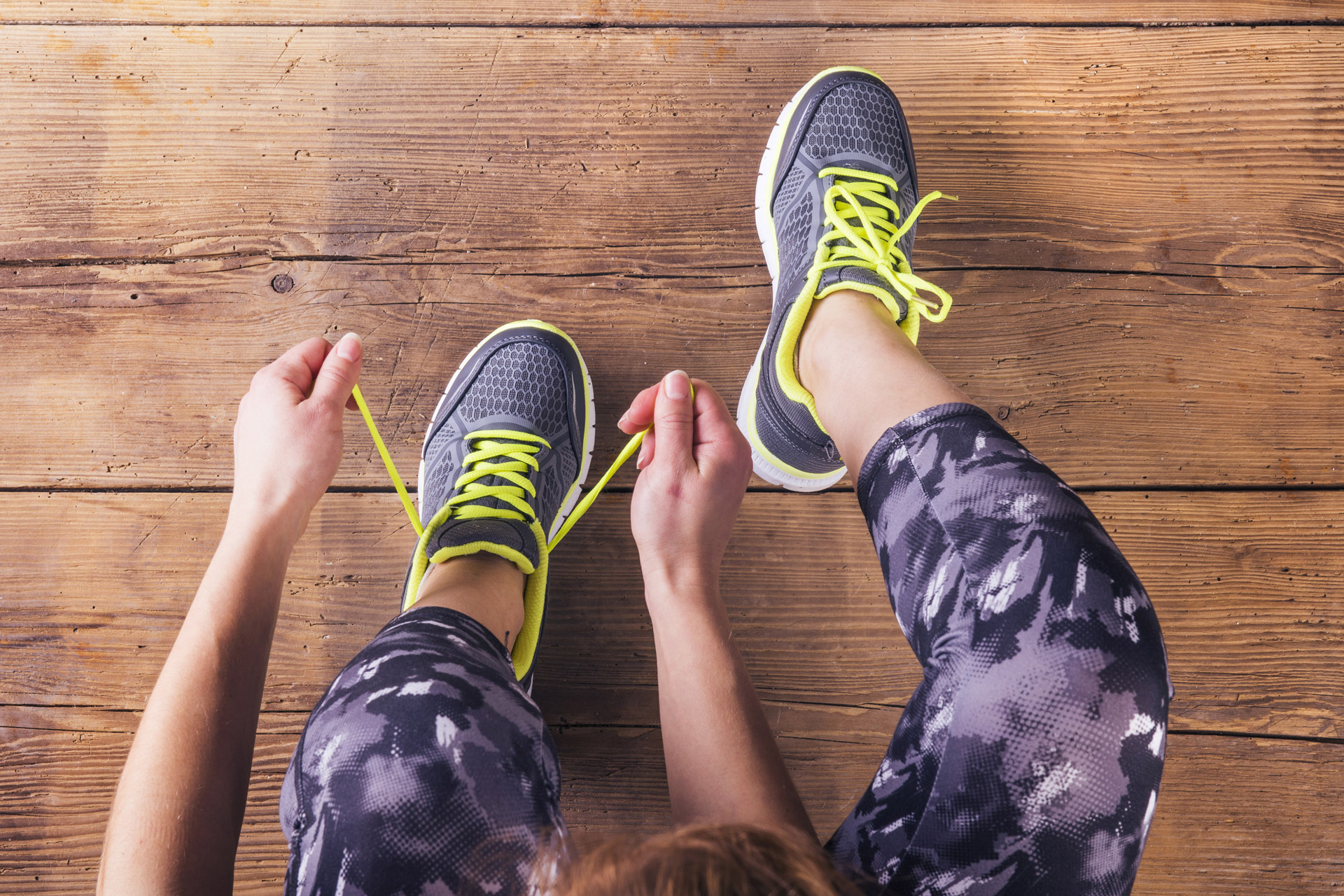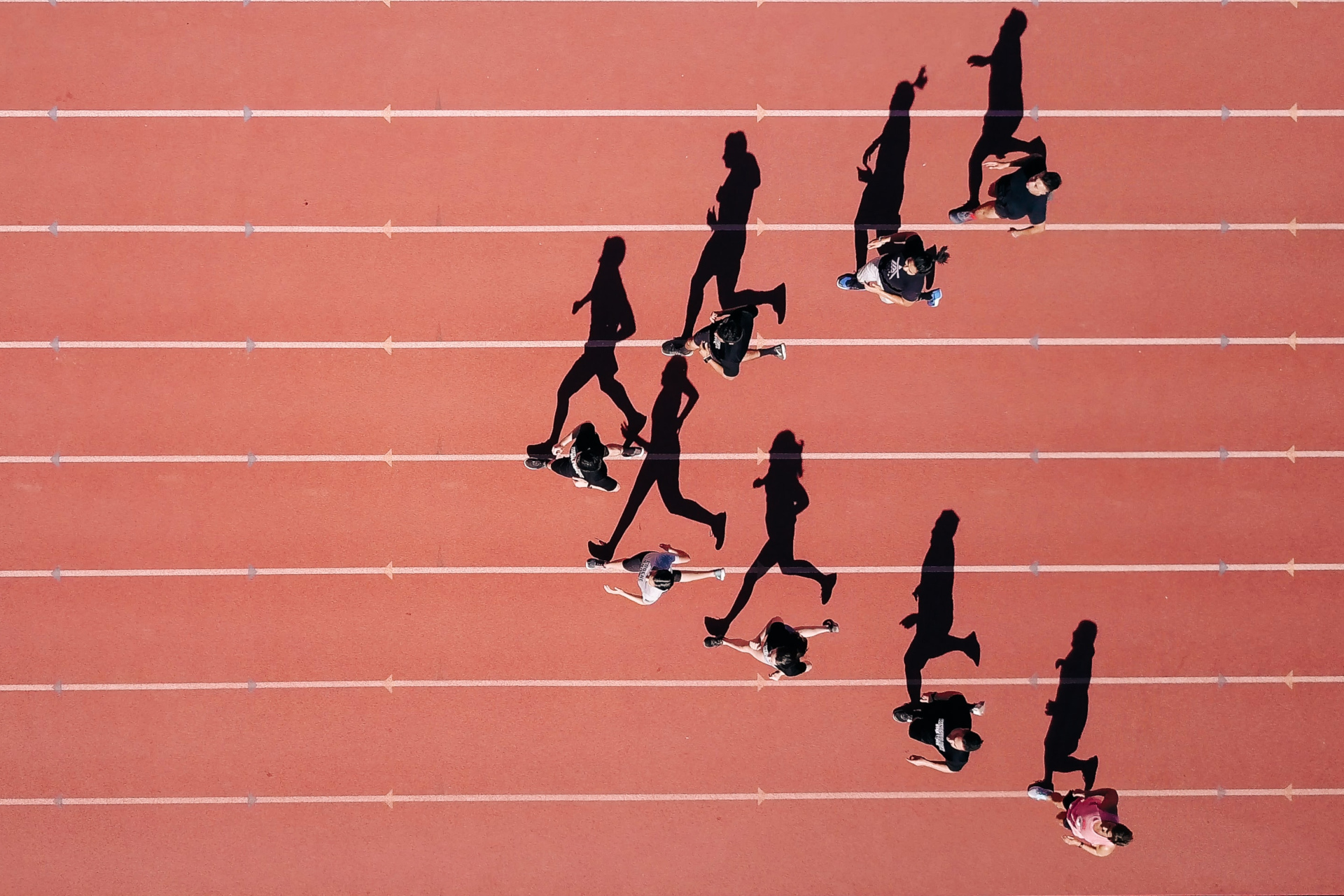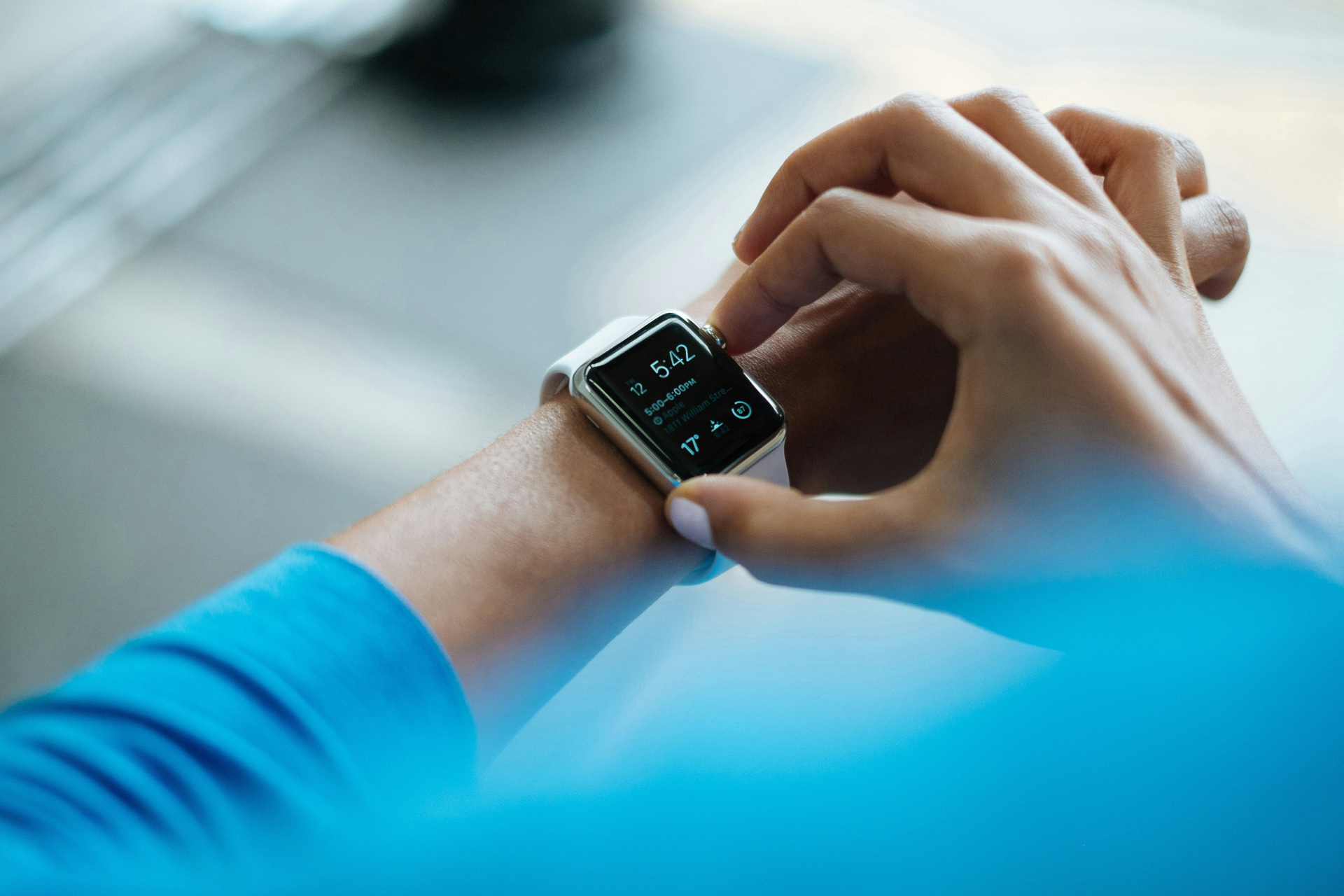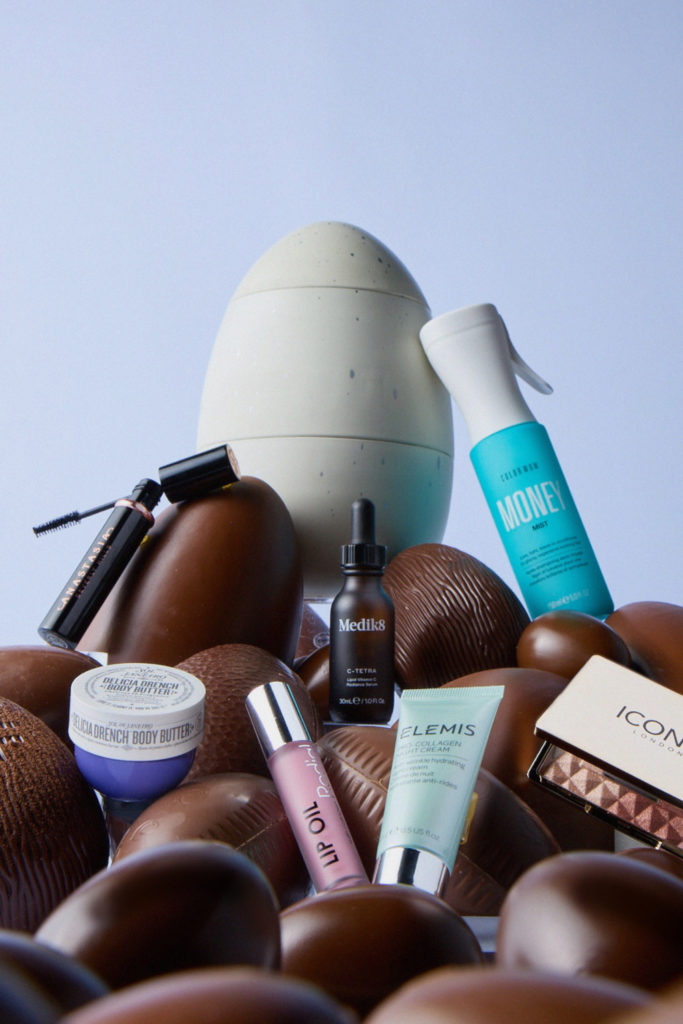
10 Fitness Trends That Will Guarantee An Active 2025
By
3 months ago
From run clubs to Oura rings
New year, new you – right? If you’re already making plans for your 2025 glow up, you’ve come to right place. We’ve enlisted the expertise of personal trainers, fitness coaches and class instructors to find out what will be big in the world of exercise – and compiled a list of the trends to know in 2025.
Looking For 2024 Fitness Trends? Click Here
The Fitness Trends Taking Over 2025
We’re taking a more holistic approach to health in 2025, guided by the tracking tech boom and a greater awareness of mindful exercise. Sound intriguing? Here’s what to expect:
Trends At A Glance
- Winter Arc
- Longevity Training
- Cardio Boom
- Run Clubs
- HYROX
- Injury Prevention
- Performance Recovery
- Fitness Wearables
- Low-Impact Exercise
- Matching Your Menstrual Cycle
1. Winter Arc
Tailing off the end of 2024 comes TikTok’s Winter Arc trend – a mindset that encourages us to become laser focused on goals, personal development and growth. Personal trainer and fitness coach Caroline Idiens sees this mindset continuing well into 2025: ‘Heralded for its ‘get it done’ attitude, this fitness trend is all about putting together an organic routine that will help you to feel fantastic by the New Year through consistency and ditching those fad exercise challenges. Due to this sustainable approach to movement, I predict Winter Arc will be around well into 2025.’
2. Longevity Training
Speaking of sustainable exercise, Caroline also notes that we’ll see a shift towards longevity-focused training. ‘Whether we like this fact or not, with each New Year we enter, we in turn get a little bit older – but in 2025 fitness trends will tap into exactly this,’ she tells us. ‘Long gone are the days of hard and fast challenges designed to exhaust us. Next year, strength and resistance training will continue to rise in popularity across all age groups, and why? Because we’re more mindful than ever about the longer-term impact and benefits of functional fitness (exercise that mimics everyday movement) and keeping ourselves strong and injury free as we age.’

(c) Getty Images
3. Cardio Boom
And while muscle-strengthening workouts have taken the spotlight in 2024, it’s looking even better for cardio come 2025. ‘In recent years, there has been a notable decline in use of cardio equipment at the gym as exercise goers recognise the importance of lifting weights,’ notes Caroline. ‘2025 is likely to have a bit of a cardio re-birth. You only need to look this year’s surge of running and walking communities to see how social this form of exercise can be, but did you know how beneficial cardio is for cardiovascular and mental health? In addition to strength training, cardio is important for staying well and healthy, and is the most cost-effective way to include daily movement. I absolutely love my daily dog walks and getting those steps in.’
4. Run Clubs
One form of cardio that has made a splash this year is the humble run club. ‘Run clubs have seen huge growth in recent months, as people look to them for the social and mental health benefits as much as the cardiovascular gains,’ explains Jenni Tardiff, Master Trainer at The Gym Group. ‘The great thing about run clubs is that they’re suitable for all fitness levels, whether you are training for a race or just looking to get moving outdoors in a supportive, motivational environment making running accessible to everyone.’
5. HYROX
Functional and hybrid training, in particular HYROX, is also proving to be a popular fitness trend for 2025. But what does it entail? ‘This is a style of training where you combine cardio endurance and strength based exercises that mimic everyday movement patterns,’ explains Jenni. ‘These workouts will push and challenge your body in different ways; from running to pushing heavy sleds. Booking onto an event like HYROX helps to keep your training consistent and gives you a clear goal to work towards. After you have completed your first HYROX event you will see a full breakdown of each of your run times and functional station times to help identify your strengths and weakness to work on for the next one.’

(c) Steven Lelham, Unsplash
6. Injury Prevention
And with more people than ever honing in on regular exercise routines, our experts predict a rise in awareness around injury prevention. ‘Injury prevention is becoming a key part of training plans, for many gym goers as the importance of having a more balanced approached to their health and wellbeing fitness goals is becoming more widely understood,’ says Jenni. ‘Simply incorporating an element of mobility and stretching before and after workout can help aid prevent injuries and ensure you’re able to reap the benefits of exercise for longer.’
7. Performance Recovery
And, on the other side of injury prevention, is mindful recovery. ‘In the past, recovery has seen as just rest,’ notes celebrity personal trainer, Pilates instructor and barre specialist Aimee Victoria Long. ‘But now recovery comes in many forms: massage guns, saunas, ice baths or even cryotherapy. There are so many methods to aid recovery now. Everybody is looking for the smallest of percentages to improve better – whether that’s in their workouts or at work. Better recovery ultimately leads to this.’
8. Fitness Wearables
Have you been tracking your steps? Or maybe even your health stats? If you have a smartphone or watch, chances are you’re looking at both pretty regularly – and will be even more, as we head into 2025. ‘Fitness wearables such as Apple Watches and Fitbits have been big for a few years now,’ says Aimee. ‘But wearables such as the whoop and Oura have taken the market by storm over the last year. These wearables don’t just track your steps and calories, they can also document vital metrics such as your HRV, skin temperature and respiratory rate and, based on this, tell you how prepared you are to perform in your training. I can definitely see coaches and apps integrating with clients’ wearables to sculpt their training sessions. Varying load, intensity and training discipline. People are far more conscious of their recovery as well as their training now more than ever, which is a great thing and ultimately will get better results if they listen to their bodies a little more.’
This opens the floor to 2025’s next big fitness trend: AI coaching. ‘Artificial intelligence will play a more significant role in personal wellness,’ emphasises Alasdair Nicoll, expert tutor at The Fitness Group. ‘AI will have millions of pounds behind it and with this we will likely see more personalised experiences through wearable technology, meaning that individuals will be able to track and progress towards better health and performance in a much more specific and dynamic way. From AI-driven health coaches to personalized fitness plans and mental health support, technology will enable more customized and efficient wellness solutions.’

(c) Luke Chesser, Unsplash
9. Low-Impact Exercise
You don’t have to wear yourself out to improve your fitness. Instead, you can turn to low-impact workouts to get your health fix. ‘2024 has seen low-impact exercise such as walking and Pilates take precedence,’ highlights fitness, wellness and nutrition expert Penny Weston. ‘Instead of high-intensity exercise, a lot of people have been turning to low-impact workouts to improve fitness or lose weight.’
One of the major workouts Penny sees becoming even bigger is walking. ‘Walking has wonderful benefits for the mind and body,’ she notes. ‘Whilst it might not be the most strenuous form of exercise, it is certainly an effective way to get in shape and burn fat and strengthen the muscles in your legs to make them look more toned. You can try incline walking or walking with weights to make the workout more impactful, so it’s completely customisable to your own needs, too.
‘Walking has become quite popular online as it is easily accessible and can also provide a more holistic approach to exercise that is very popular amongst Gen Z right now,’ she continues. ‘Walking outside has been popularised for both its physical health benefits and the mental benefits, too. Gen Z have been focusing a lot more on a 360-approach to wellness; rather than just physical fitness, they are promoting mental wellbeing through exercise as well, and walking is a great example of that.’
10. Matching Your Menstrual Cycle
And finally, expect some movement towards routines built around menstrual cycles. ‘I predict a lot of women basing their workouts on what works best for them throughout their menstrual cycle,’ Penny tells us. ‘During menstruation, for example, I recommend doing low-impact exercises to help with cramps and fatigue such as yoga, walking or gentle cycling. And the during the follicular stage, your energy levels are high due to high oestrogen, so you can move onto HIIT workouts or other high-intensity exercises. Ovulation is a great time to push yourself in the gym as your testosterone levels are higher. Try something like weight resistance training during this time. The Luteal phase, meanwhile, brings your energy levels back down again, so you might want to take it easier with walking, yoga, or low-impact exercises.’
Featured image: Marcos Paulo Prado, Unsplash









